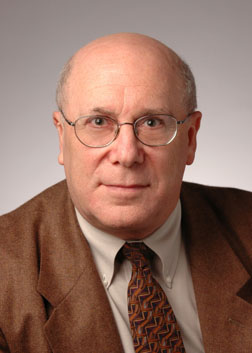Philip Rubin named to American Academy science project

NEW HAVEN — Philip Rubin, Ph.D., of Fairfield, Connecticut, Chief Executive Officer emeritus and board member at Haskins Laboratories, and Professor Adjunct in the Department of Surgery, Otolaryngology, at the Yale University School of Medicine, has been named to serve as a member of the American Academy of Arts & Sciences Challenges for International Scientific Partnerships (CISP) Large-Scale Science Working Group. The research goal of CISP is to assess the challenges and opportunities presented by evolving trends in society, as well as changes in the types and structures of international science partnerships. The project will identify a diverse set of partnerships to evaluate successful and unsuccessful organizational dynamics, institutional practices, and public policies.
Rubin, a graduate of Brandeis University and the University of Connecticut, is also a Research Affiliate in the Department of Psychology at Yale University and a trustee of the University of Connecticut. He was a science advisor at the Office of Science and Technology Policy (OSTP) and led the White House neuroscience initiative during the Obama administration, and co-chaired the National Science and Technology Council (NSTC) Committee on Science. He is a Fellow of the American Association for the Advancement of Science, the Acoustical Society of America, the American Psychological Association, the Association for Psychological Science, the Linguistic Society of America, a Senior Member of the IEEE, an elected member of the National Academy of Public Administration and the Connecticut Academy of Science and Engineering, and a member of the American Academy of Arts & Sciences Language Commission.
Haskins Laboratories was founded in 1935 by the late Dr. Caryl P. Haskins. The Laboratories’ primary research focus is on the science of the spoken and written word, including inter-disciplinary neurocognitive research, theoretical development, and technological advances leading to insights in understanding the brain’s role in speech, language, and reading problems and their treatment. This independent research institute has been in New Haven, Connecticut since 1970 when it formalized affiliations with Yale University and the University of Connecticut, and has extensive national and international research partnerships.